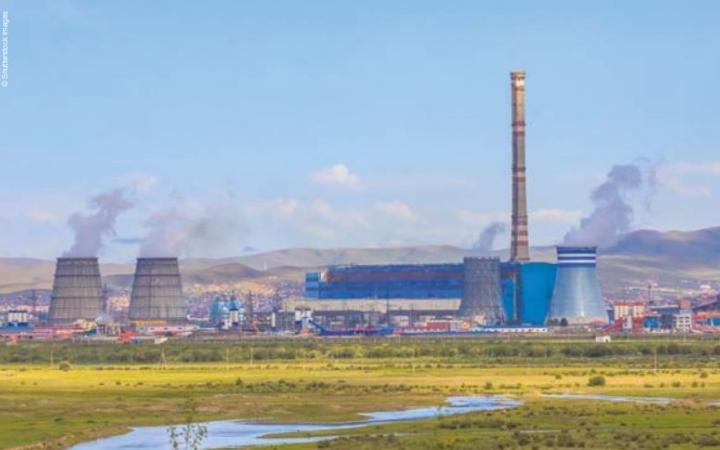Partner: Ministry of Environment and Tourism, Mongolia
Focal Point: Sarantuya Jigjiddorj
Title: Consultant for the Ministry of the Environment of Mongolia — National Coordinator of the training
Training: National Inception Workshop and trainings on institutional and technical aspects of PRTRs in Mongolia
Since 1990 Mongolia has transitioned into a vibrant democracy. Its vast quantities of untapped mineral wealth have made it a target for foreign investors, transforming the country’s tiny but fast-growing economy. These rapid changes increase economic opportunities, but they often come at the expense of human and environmental health. Over 100 million man-made chemicals and chemical formulations are used in every sector of the industrial economy; and worldwide production ensures that toxic chemicals are now found in all ecosystems on Earth, including Antarctica and the most remote seas. When we look to the future, the projections are more alarming. By 2025, cities around the world will produce 2.2 billion tonnes of waste every year. More than ever, economic growth must be matched by enhanced programmes and initiatives for sound chemicals and waste management. Fortunately, Mongolia is doing just that.
Mongolia has ratified international treaties on chemical and waste management, such as the Basel, Rotterdam, and Stockholm Conventions, while national legislation on the topic has been in force since 2000. The country also has numerous strategic plans for hazardous waste management in place such as the National Programme on Decreasing Waste. To help address its waste stream, Mongolia counted on extra help from UNITAR to design and implement a national Pollutant Release and Transfer Register (PRTR). “This is a very important project for Mongolia because it lays the foundation for improving the quality of data collection in the country to make it more accurate and, therefore, reliable. So far, the national database depends on the administrative data collected in the provinces, but by introducing the PRTR we can collect real data from the industrial facilities as well”, explains Sarantuya Jigjiddorj, a Consultant and National Coordinator of the PRTR project for the Ministry of Environment and Tourism in Mongolia.
At first, Sarantuya was anxious about working with Pollutant Release and Transfer Registers (PRTRs), as it was still a little-known topic in Mongolia.
“At the beginning, it was a little bit challenging because even I had to do some desk review to understand more about it. But UNITAR has a very structured process of implementing such projects. They’ve supported the project’s local office and have always given easy-to-follow instructions”.
The project started with a series of trainings and workshops to get public officials, NGOs, Academia and other stakeholders familiar with the different aspects of PRTRs, especially their technical and institutional features. Sarantuya and her colleagues organized also an outreach campaign, visiting industrial facilities in Ulaanbaatar and talking to interested professionals about the trainings. “We invited them to participate in the project activities, to learn more about PRTRs. When they heard that we were working on the same issues they were and that we were on the same track, they were so excited that they’ve even got other companies and other people involved”.
During the trainings, the participants learned how to effectively communicate reported data from industries, which release estimation techniques should be used and what kind of legal framework needs to be developed at the national level. “UNITAR delivered the trainings and invited Mr Nebojša Redžić, Head of Unit at the Serbian Environmental Protection Agency and a PRTP expert, which it was very helpful as it gave us a comprehensible understanding of the PRTRs. To support the training, we’ve translated UNITAR’s brochure on PRTRs to Mongolian and distributed it to those who participated in our project activities as well as to everyone interested in the subject”. And for those willing to learn more about it, she says: “I’ve used UNITAR’s PRTR Platform and I found it very useful. I recommend it to everyone that is confused about some areas of the PRTRs”.
As countries work to improve their data collection in order to comply with the multilateral environmental agreements, barriers in the private sector often hinder the possibility of change in the way chemicals are produced and managed. Therefore, it is important to create a responsibility system of producers or waste generators to ensure the contribution of more stakeholders towards waste management. For Sarantuya, the first efforts to get people in Mongolia involved are already paying off. “After the first workshops the participants had a better understanding of what the national PRTR would be and it became easier to get them on board to collaborate with us”.
With UNITAR’s help, Mongolia has designed its national PRTR system and is ready to compile data from point sources of pollution in the capital. Sarantuya believes these new initiatives will be highly beneficial for her homeland in many aspects.
“Once we set up the initial PRTR, I believe we will be able to comply with our responsibilities to the conventions and this is, of course, very positive for the country. But, moreover, once industrial facilities start to introduce and submit their PRTR, they will be much more aware of their pollution and emissions and consequently more interested in investing in greener technologies for their facilities, which contributes to sustainable development. So, this is beneficial not only for the government offices but also for the businesses and industries”.
Meanwhile, Sarantuya wants to share what she learned with others. “By coordinating these trainings, I’ve learned a lot of things about environmental data and the importance of being environmentally conscious. Now I want to share my knowledge and teach others about environmental protection and sustainable consumption and production”.



